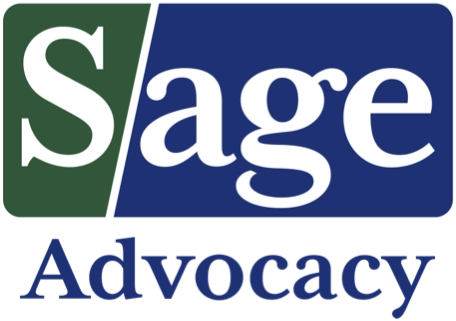‘Minding your Marbles’ – Information on new laws which will affect us all
‘We have legal change, now we need culture change’
Sage Advocacy has today announced an important information resource to help people understand new landmark laws relating to the capacity to make decisions – which will come into effect on Wednesday, April 26th.
The Assisted Decision Making Acts, which will come into effect from April 26, will replace the much criticised ‘Lunacy Regulation Act’ of 1871 and the associated Wards of Court system.
The new laws have guiding principles of which the most important is a presumption of capacity to make decisions. The law also places responsibility on health and social care professionals and legal, financial and public services to be proactive in assisting people’s decision making as much as possible.
The new laws will be relevant to all families at certain times, and a very wide range of professionals and service providers in their routine work.
They are of particular importance for people who live with frailty, dementia, an intellectual disability, an acquired brain injury, or who communicate differently, and close family and friends, as they set out a new tiered approach of differing levels of assistance with decision-making.
The ADM Acts mark a radical change in Irish legislation and Sage Advocacy, which has been campaigning for the legislation since it was established in 2014, has developed a public and professional awareness video called ‘Minding your Marbles’ to explain it.
The video provides a clear guide to the different levels of support for decision-making and guidance in supporting a person who might have diminished capacity to make decisions using an approach called ALERT. Minding Your Marbles is now available at www.sageadvocacy.ie.
Sage Advocacy CEO Mervyn Taylor said that in thinking about how best to explain the new legislation Sage Advocacy listened to phrases people use in everyday life to describe problems with remembering and forgetfulness.
“In such situations people may say ’I must be losing my marbles’. This legislation is all about ‘Minding Your Marbles’ and ensuring that others, including family members and health and social care professionals, do not start making decisions in our ‘best interests’.
“People are now obliged to assist people with making a particular decision and not to presume that because a person might need support that they lack capacity to make the decision.
“Sometimes when people talk about ‘best interests’ they are overly influenced by their own interests or the interests of service providers. The Assisted Decision Making (Capacity) Acts will, in practice, help people to ‘mind their marbles’.
“I really encourage the public to view this video to understand these legislative changes as they will affect all families at some point in the future. The legislation is of considerable importance for the practice of health and social care professionals, and also for those providing financial and legal services.
“There will be codes of practice for all of these and, significantly, there will also be a code of practice for independent advocates. We now have legal change; what we need to work on is the culture change.”
The Assisted Decision Making (Capacity) Act was passed in 2015 but it has taken until 2023 to implement it. Amending legislation was required in 2022 and collectively they are now known as the Assisted Decision Making (Capacity) Acts or ADM Acts for short.
A Decision Support Service has been established under the legislation and it is responsible for promoting public awareness and oversight of the more formal decision support arrangements. The Courts will be involved in the appointment of Decision Making Representatives where it decides that a person lacks the ability to make decisions.
The coming into effect of the new legislation means that all those who are currently Wards of Court will have their cases reviewed during the next three years. Advance Healthcare Directives are now covered by legislation for the first time and Powers of Attorney arrangements are also being refined.
Mervyn Taylor concluded: “Over one hundred and fifty years later, much later than most other developed countries, we now have legislation reflecting the democratic instincts of our time’. The Assisted Decision-Making Capacity Acts place an onus on all of us to presume, and assist if necessary, each persons’ capacity to make their own decisions.
“It gives a long overdue framework for upholding the decision-making rights of people who may be vulnerable. We must always remember that any diminution in decision making abilities does not mean a diminution in rights.”
View Minding Your Marbles at www.sageadvocacy.ie
Further Information
Ronan Cavanagh, Cavanagh Communications: (086) 317 9731 / ronan@cavanaghcommunications.ie
Notes to Editor
Sage Advocacy clg is a registered charity which operates nationally and is based on Ormond Quay in central Dublin. It was established in 2014 as a support and advocacy service for older people by the HSE and The Atlantic Philanthropies and is now the National Advocacy Service for Older People. In 2022 it provided support and advocacy to almost 5,000 people with 26 staff, 33 volunteers and public funding of less than €1.8m. It has also received funding from the Dept of Justice, the EU Erasmus+ Programme and the Irish Human Rights & Equality Commission. Sage Advocacy has been widely seen as a ‘go to’ organisation in relation to the emerging Assisted Decision Making (Capacity) legislation and many thousands of people have attended in person and online information events organised through Sage since 2015.
Cavanagh Communications I OfficePod 18, 6-7 Marine Road, Dun Laoghaire, Co. Dublin, Ireland. A96 R2N4.
www.cavanaghcommunications.ie
Media Relations I Public Affairs I Communications Management I PRII Awards: Winner 2014 & Finalist 2022 & 2015.



